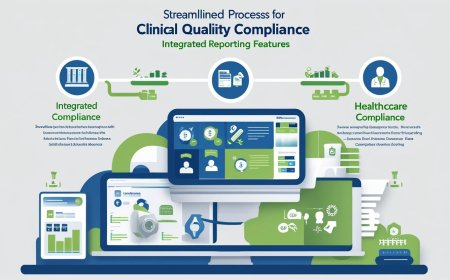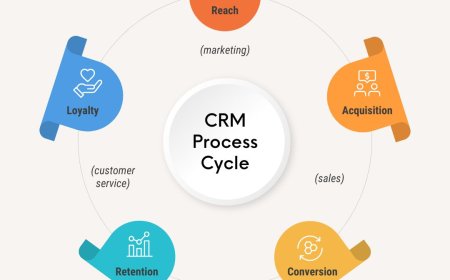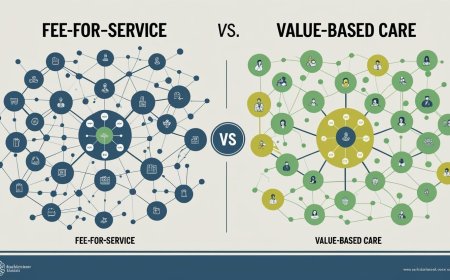How Third Party Verification Services Strengthen Trust and Compliance in Modern Business
Third party verification services refer to the use of an independent organization to confirm or validate information provided by another party.

In todays fast-paced digital economy, businesses face growing pressure to verify identities, validate transactions, and ensure compliance with a myriad of regulations. Whether it's verifying the identity of a customer, authenticating a phone call, or confirming documentation for legal compliance, third party verification services (TPV) have become a vital component in business operations across industries.
What Are Third Party Verification Services?
Third party verification services refer to the use of an independent organization to confirm or validate information provided by another party. This process ensures objectivity, accuracy, and transparency. These services are commonly used in industries like telecom, finance, healthcare, real estate, insurance, and e-commerce.
For example, when a customer agrees to a contract over the phone, the verification company may record and store the confirmation, ensuring that the customer's consent is legally documented. Similarly, in the financial sector, TPV may involve validating a customers identity to comply with Know Your Customer (KYC) and Anti-Money Laundering (AML) regulations.
Why Businesses Rely on TPV
-
Ensures Regulatory Compliance
Regulatory bodies often mandate businesses to maintain accurate records of customer consent or identity verification. TPV services help companies comply with laws like HIPAA, GDPR, TCPA, and others, reducing the risk of penalties.
-
Improves Data Accuracy
Relying on internal staff for verification can lead to errors or bias. Third party services are objective and dedicated to verification processes, ensuring that the collected information is accurate and tamper-proof.
-
Boosts Customer Trust
Customers feel more secure knowing that an independent entity is involved in confirming their consent or identity. This impartiality enhances brand credibility and builds long-term trust.
-
Reduces Fraud and Disputes
Fraudulent activities such as fake identities, unauthorized sign-ups, and misleading customer claims are minimized with TPV. In case of legal disputes, the recorded evidence from the third party serves as a strong defense.
-
Saves Time and Resources
Outsourcing verification responsibilities allows businesses to focus on their core functions, reducing operational burdens and enabling scalability without compromising security.
Common Use Cases for TPV
-
Telecommunication Companies: Verifying service agreements over phone calls before activating a new plan.
-
Financial Institutions: Conducting identity checks to meet KYC/AML norms.
-
eCommerce Platforms: Validating user data before processing large transactions or high-value orders.
-
Healthcare Providers: Confirming patient information for HIPAA compliance.
-
Insurance Firms: Authenticating policyholder consent and verifying claims data.
Choosing the Right Third Party Verification Provider
When selecting a TPV provider, businesses should evaluate the following:
-
Compliance Standards: Ensure the provider adheres to relevant data protection laws and industry-specific regulations.
-
Security Protocols: Look for robust encryption, secure data storage, and multi-factor authentication mechanisms.
-
Integration Capabilities: A good provider offers seamless API integrations to connect with your CRM, billing, or customer service platforms.
-
Real-Time Reporting: Access to real-time dashboards and audit trails improves transparency and decision-making.
-
Multichannel Support: Opt for providers that support phone, email, video, and SMS-based verification, allowing flexibility across customer touchpoints.
The Future of Verification Services
As fraud tactics become more sophisticated and compliance requirements more complex, third party verification services will continue to evolve. Artificial Intelligence (AI) and Machine Learning (ML) are already being integrated into TPV platforms to analyze behavioral patterns, detect anomalies, and automate decision-making processes.
Biometric verification (like facial recognition and voiceprints), blockchain for immutable records, and global identity databases are setting the stage for next-gen verification systems that are faster, more secure, and more scalable.
Conclusion
Third party verification services are no longer just a regulatory checkboxthey are a strategic necessity for any business that values trust, compliance, and operational efficiency. By outsourcing verification to a specialized and impartial provider, companies can reduce risk, improve customer experiences, and operate with greater confidence in an increasingly digital world.
Whether you're a startup expanding your customer base or a large enterprise managing complex compliance challenges, integrating third party verification into your processes can provide the clarity and control your business needs to thrive.


































